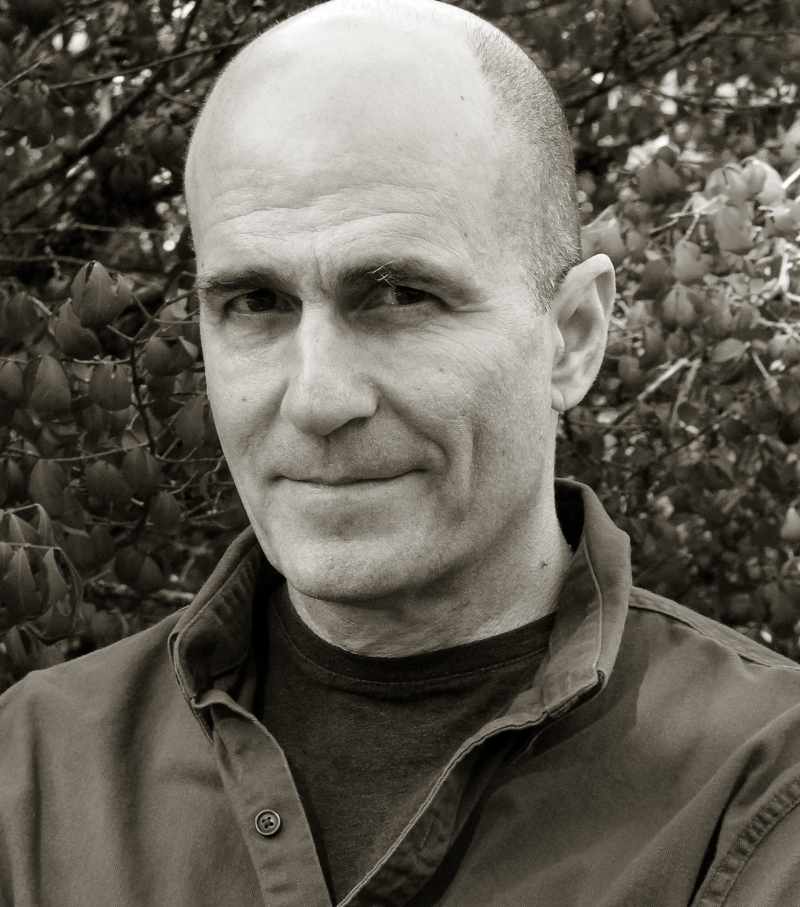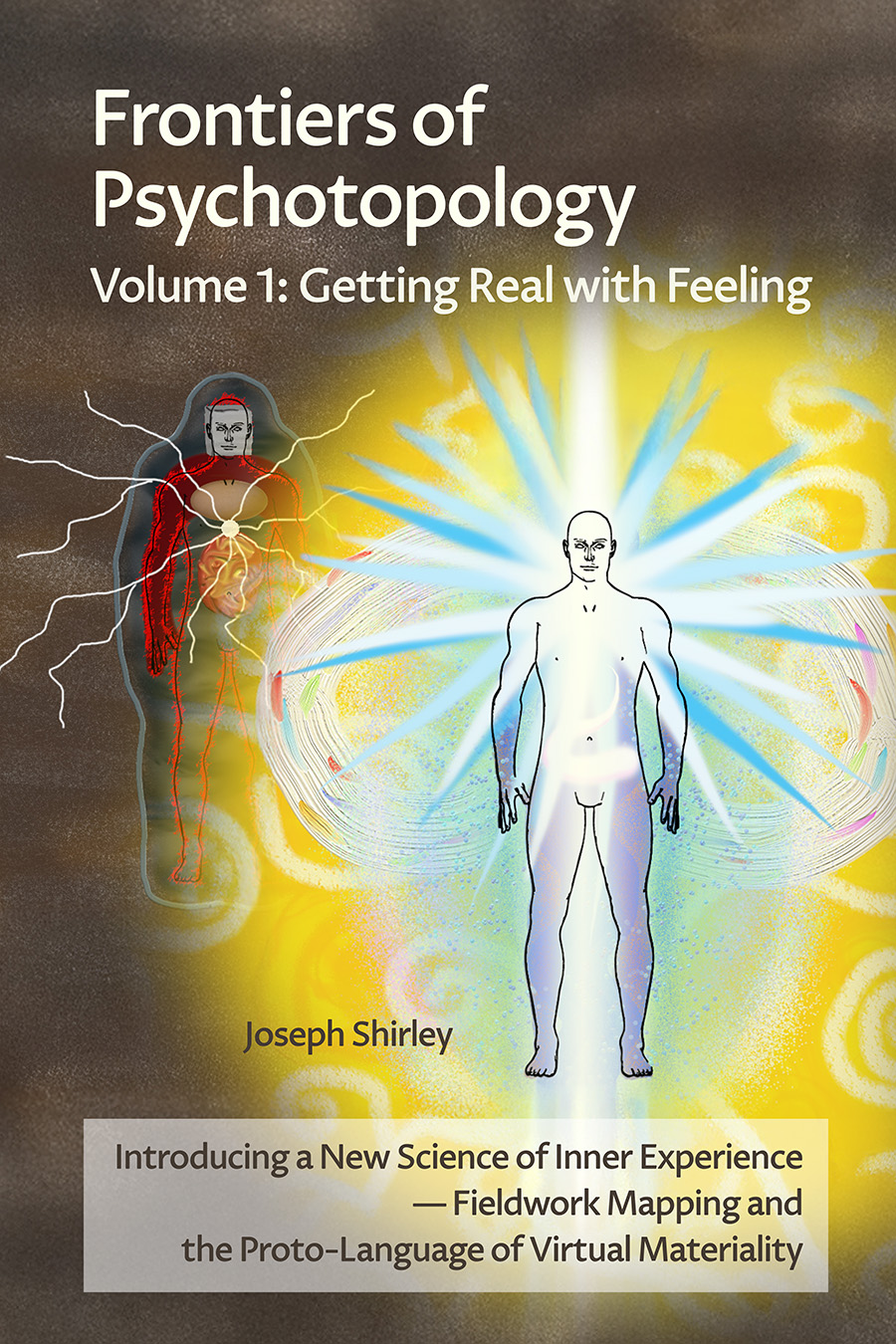Introducing Psychotopology:
A Catalyst for Thriving
A First-Person Science of Subjective Experience
What does it take to create a functional science of the mind? For starters, it requires observing the territory of actual, inner experience with greater acuity than our sciences of the mind have yet attained.
It is time for an upgrade. Psychotopology introduces the capacity to observe subjective experience with depth and precision, and the discoveries it generates have the potential to shake the foundations of conventional models of psychology, consciousness, and more, while supporting some of the latest neuroscientific hypotheses.
About the name…
If you google “psychotopology,” you’ll find a couple thousand hits with a redundancy that drops the list down almost to a hundred. It has been used to point vaguely to an overlap of psychology with space of various kinds, from “the psychological dimension of place” to “a psychoanalytic understanding of space.” All very abstract.
As you will see, I am redefining this word to point to a shift in our focus from the intractably complex surface patterns of cognition that dominate today’s psychology to an underlying, much more elegant architecture rooted in a field model of conscious experience. This underlying structure is tangible and universal, not abstract in any way, a literal topography (personal) and topology (universal) of inner space, and its discovery opens up new possibilities for a true science of inner life.
There is good reason the scientific effort to understand consciousness has struggled so far. This combination — First Person Subjectivity plus Science — pushes the edges of what we have known science to be. I want to honor all those who have gone before me in devoting their lives to this most sacred human project.
New Methods to Enhance Thriving for All
When we leverage a true science of experience, we are able to design formidable tools and practices for broad-spectrum vitality.
At the center is a new understanding of the primary importance of feeling, along with tools specifically crafted to meet the unique structure of feelingmind. The next level enables skillful crafting of the fields of thought, perception, and presence to facilitate heightened forms of excellence.
Working at either of these levels is far more targeted and effective than dealing with the sprawling complexity of cognition for the purpose of shaping inner experience to better serve life.
The method that spawned psychotopology, fieldwork, facilitates enhanced awareness of the actual, conscious experience of feeling. Fieldwork not only enables us to observe a dimension of ourselves that was previously invisible, but it swiftly liberates us from dysfunctional patterns of emotion, thought, and behavior.
New Pathways to Transform Self and Society
The discoveries emerging from psychotopology send seismic waves through our conventional assumptions about human nature. The result is an invitation to completely re-imagine how we live, both as individuals and as collective communities.
At the center of this transformation is the understanding that we have crippled ourselves by placing rationality at the center of human aspiration. The natural role of rationality is to serve, and at the natural center lies the inner experience of feeling.
Restoring our priorities to reflect the true nature of consciousness has the power to change everything for the benefit of all. Among other revelations, when we shift our focus to feeling at the center, we discover that there are no “bad” people, only those whose natural drives toward wholeness have been obstructed by our society’s unnatural suppression and distortion of feeling.
One of the strongest catalysts for transformation emerging from psychotopology is the discovery that feeling is more central to consciousness than thought. When we place feeling at the center of our lives and our systems instead of subjugating it to the many delusions of a misguided rationality, then we will see the change we all are longing for.
New Questions About the Nature of Consciousness
The investigative tools of psychotopology deliver unexpected clarity while raising new questions about the structure and dynamics of consciousness and its relationship to reality itself.
New doors have been opened, revealing others still closed, yet beckoning. The world with which we are intimately interwoven is far more mysterious than we imagined, and far more beautiful than we ever were able to see.
When we look into the dimension of feeling, what do we expect to find? Fieldwork reveals an elegant, fractal architecture that is completely unanticipated by any existing model of consciousness. With the exposure of this underlying structure, many new possibilities suggest themselves.
A Pioneering Community of First-Person Scientists
My vision is to seed a growing network of practitioners, researchers, and explorers who work together to establish psychotopology as foundational to society’s next steps. This work is too important, and its scope is too vast, to be stewarded by me alone, or even a small group. It will take very many of us to realize the potential of this new frontier, every one of us following our greatest passions toward manifesting what is possible in our own unique ways.
Might you consider joining us?
This work is at a crucial juncture. Psychotopology needs a community of fellow inquirers willing to transgress the boundary of what is currently known in order to establish clearly its potent contributions to our collective understanding of humanity and life itself.

Your Host, Joe Shirley
I am a renegade, an outlier, an outsider. You won’t read my name on the rosters of any institution or company. And you won’t catch me hanging out on standard social media.
Until now, I have cultivated this outsider position for a reason. It has enabled me to approach my work with a radically open mind. For me, the raw data of inner experience — my own and that of all my fellow first-person scientists over the years — provides a far more powerful basis upon which to make sense of ourselves and the world than any current, culturally-influenced worldview. I have needed this societal isolation to provide me the space in which to engage this raw data with clear eyes and an open heart.
But I have reached a moment where it makes sense to shift my attention. It gives me great satisfaction to begin compiling all I have learned and to share it with you. Starting today, June 20, 2024, I will be publishing Frontiers of Psychotopology on Substack. Over coming months and years, I will offer all I have learned and invite you to get involved in taking psychotopology into its next phase of development. Please join me!
This is my life’s work. As an undergraduate, I intended to become a brain scientist until bipolar disorder derailed my plans. But in the course of liberating myself from this curse, I found my way back to the heart of consciousness, making new discoveries of phenomena I would never have thought to explore had I continued unimpeded on my original track.
It’s here!

I’m finally pulling it all together. This is Volume 1 of three, where I detail fieldwork mapping and describe the discoveries that come from it. Here is the announcement post, with info about how to grab a copy. Subscribe to the Frontiers of Psychotopology Substack to stay in the loop:
400+ pages of deep dive!
